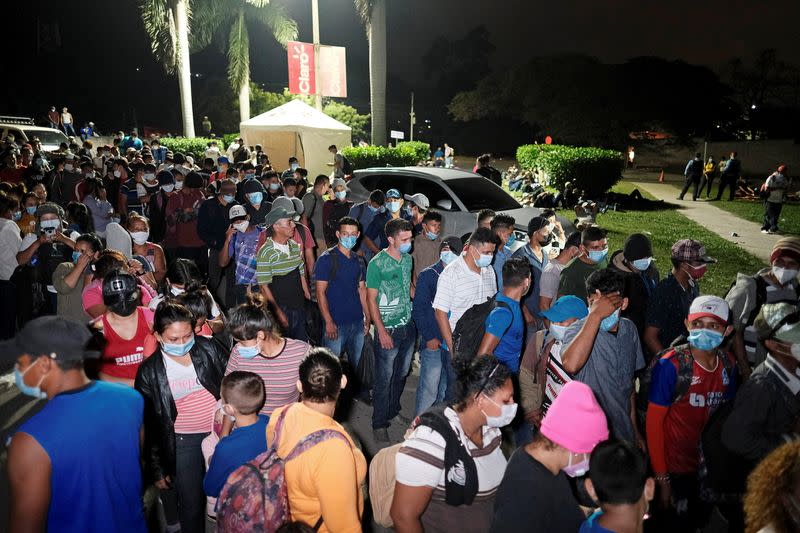By Gustavo Palencia and Sofia Menchu
TEGUCIGALPA (Reuters) – Hundreds of Central Americans camped outside the bus terminal in the city of San Pedro Sula, Honduras, anxiously awaiting the departure of a migrating caravan early Friday morning in hopes of reaching the United States.
Local television footage showed an increasing number of families, many of whom carry young children, gathered throughout the evening on Thursday, despite Central American authorities deploying troops to regional borders to ward off migrants from the crossing.
This week’s caravan will be the first of the year and comes less than a week before Joe Biden, the elected US president, takes office. Biden has promised a more humane approach to migration, as a departure from outgoing President Donald Trump’s anti-immigrant policies.
In addition to the coronavirus pandemic, Central America is also facing an increasing hunger crisis, high violence and the devastating fallout of two major hurricanes that plagued the region in November.
Authorities in Central America and Mexico have made efforts to stop the caravan long before the U.S. border, using anti-coronavirus measures as the latest tool to curb migration.
This is likely to be a relief to Biden, whose assistants have expressed concern about the prospect of increasing numbers of migrants seeking to enter the United States in the early days of his rule.
On Thursday, Guatemala cited the pandemic to declare emergency forces in seven border provinces that migrants regularly travel through on their way to Mexico. The measures limit public protests and allow authorities to disperse public meetings, groups or demonstrations by force.
Honduras and Guatemala have announced they will deploy thousands of troops to stop caravan members for the time being, while Mexico also deployed agents to the southern border on Thursday.
(Reporting by Gustavo Palencia in Honduras, Sofia Menchu in Guatemala, Lizbeth Diaz in Mexico City and Laura Gottesdiener in Monterrey; Editing by Kenneth Maxwell)
